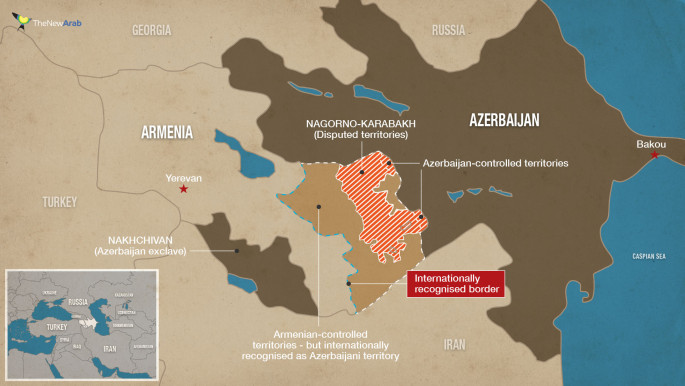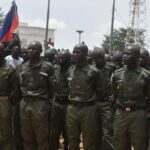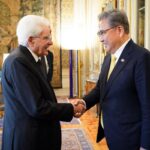Report in the heart of a disputed region, that of Nagorno-Karabakh. Euronews went to the crossing point of the Lachin corridor, controlled by Baku.
Getting around the mountainous region of Nagorno-Karabakh is no easy task – and it has little to do with geography – but rather with decades of conflict between Armenia and Azerbaijan. A tension that still exists today.
Russian soldiers have been monitoring the area since Moscow brokered a ceasefire between Armenia and Azerbaijan. It made it possible to put an end to the last war without, however, ensuring peace in the region.
“Point of tension of what remains of the conflict between Armenia and Azerbaijan: the Lachin corridor. It connects the Armenian territory to the pockets of Nagorno-Karabakh still under the control of the Armenian ethnic group.” Baku has set up its border post, claiming that it is its right to control who enters its territory,” explains Anelise Borges, senior reporter for Euronews, near the Lachin corridor.
On the day of filming, a group of civilians supported by the Red Cross are escorted to Nagorno-Karabakh after receiving medical treatment in Armenia. Once the security checks have been completed, they are allowed to pass.
“Empty” supermarkets
But later, an ICRC statement refutes these practices, claiming that this is not the norm. The Armenians of Nagorno-Karabakh assure it: food, medicines and diesel are not transported there in the area. An observation shared by Marut Vanyan, journalist in Stepanakert: “We have five or six supermarkets here and all of them are completely empty. Even bread is hard to find.”
But for Baku, Nagorno Karabakh Armenians should use a different route from this corridor and therefore – buy what they need directly in Azerbaijan. A solution rejected by Brussels which is negotiating the normalization of relations between the two countries Armenia and Azerbaijan. The head of diplomacy of the European Union warned Baku: this humanitarian access should not be politicized.
A report by Anelise Borges, in the corridor of Lachin, the city in which the Azerbaijani community settles, three years after the war with Armenia.
This article is originally published on fr.euronews.com









